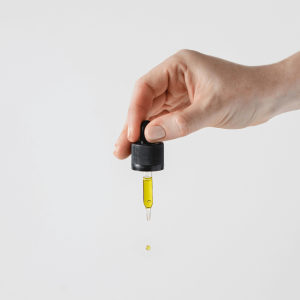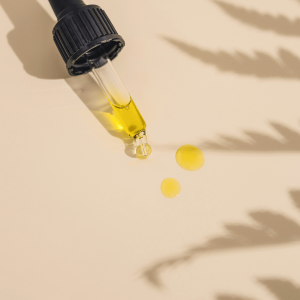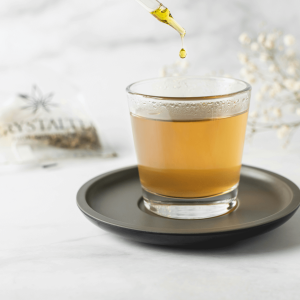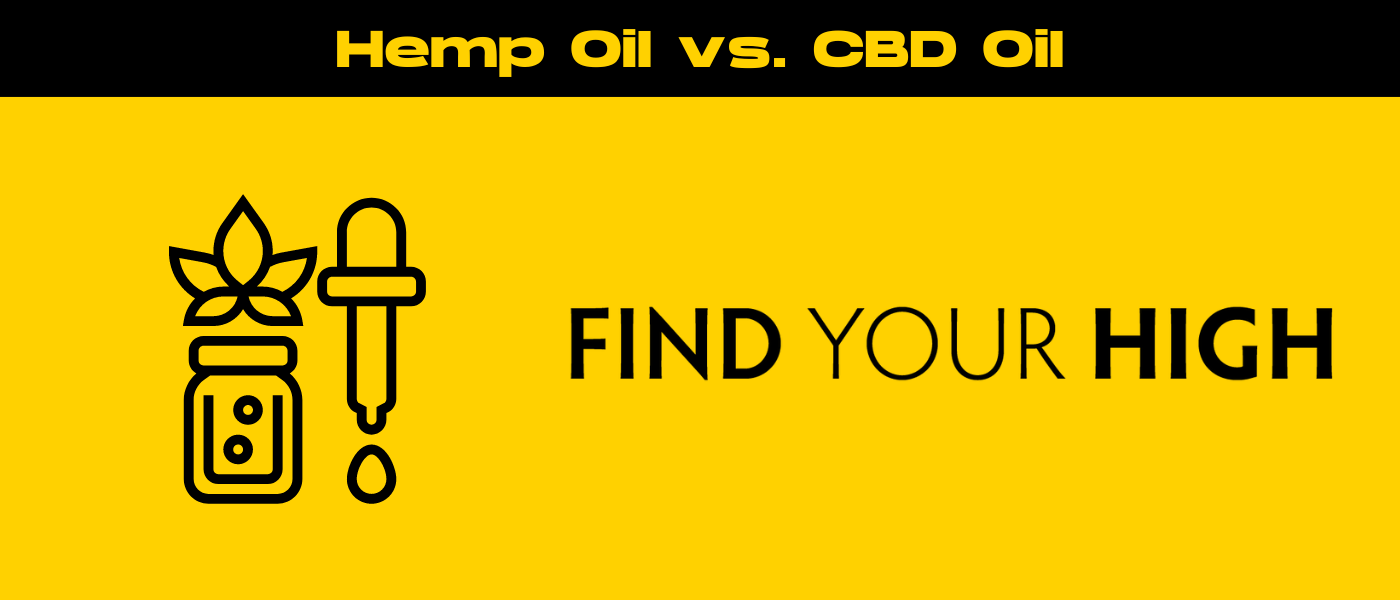In recent years, both hemp oil and CBD oil have gained significant popularity, often being hailed as natural remedies for numerous ailments. But in the battle between hemp oil vs CBD oil, which reigns supreme?
Well, the answer isn’t so simple. While they might seem similar and are sometimes confused with each other due to the fact that they’re derived from the same cannabis plant, these two oils are quite distinct in terms of their sources, uses, and benefits.
Understanding these differences is crucial for making an informed choice tailored to your needs and wellness goals. This blog aims to clear up the confusion, providing a detailed comparison of hemp oil and CBD oil, from their origins and extraction methods to their unique benefits and applications.
Let’s get started!
What is Hemp Oil?
Hemp oil, also known as hemp seed oil, is derived from, you guessed, it… hemp seeds! It’s important to clarify that, unlike CBD oil, hempseed oil contains little to no cannabinoids, which are the active compounds found in cannabis.
The extraction process typically involves cold-pressing the seeds, similar to how olive oil is made, to retain all their nutrient-rich properties. Grown primarily in regions with stable climates, hemp plants need minimal pesticide use, making the oil an environmentally friendly choice.
Nutritionally, hemp seed oil is packed with essential fatty acids like omega-3 and omega-6, proteins, and vitamins such as vitamin E, making it a powerhouse of health benefits. It’s often praised for its ability to support heart health, improve skin conditions, and act as a natural anti-inflammatory remedy.

What is CBD Oil?
CBD oil, short for cannabidiol oil, is a popular natural remedy derived from the cannabis sativa plant. Unlike hemp oil, which is made from the seeds, CBD oil is extracted from the flowers, leaves, and stalks of the hemp plant.
The primary extraction methods include CO2 extraction, ethanol extraction, and olive oil extraction, with CO2 extraction being the most common and effective technique, ensuring a pure and potent product.
CBD oil is rich in cannabinoids, particularly cannabidiol (CBD), which is non-psychoactive, meaning it doesn’t cause the “high” associated with THC (tetrahydrocannabinol). CBD interacts with the body’s endocannabinoid system, which plays a role in regulating various physiological processes such as pain, mood, and sleep. This makes CBD oil an attractive option for those seeking relief from conditions like chronic pain, anxiety, and insomnia, without the mind-altering effects of THC.

The History of Hemp Oil vs CBD Oil
Both the hemp and cannabis plant have been used for thousands of years, with their earliest known use dating back to ancient civilizations in Asia around 2700 BCE. Historically, hemp was cultivated for its strong fibers, which were used to make textiles, ropes, and even paper. The seeds were also valued for their nutritional content and used as food.
On the other hand, cannabis was often used for medicinal and spiritual purposes due to its psychoactive properties. Over time, the uses of these plants evolved, and with advancements in extraction techniques, hemp oil and CBD oil products began to emerge.
Hemp seed oil started gaining attention in the wellness industry for its rich nutritional profile, while CBD oil became known for its potential therapeutic benefits. Legal milestones have also played a significant role in their popularization; the 2018 Farm Bill in the United States, for example, legalized the production of industrial hemp and paved the way for the booming hemp and CBD oil markets we see today.
Differences in Extraction Methods
When it comes to hemp oil, CBD oil, and hemp flower, one of the key differentiators is the extraction method. Hemp oil is typically extracted through a process known as cold pressing. This method is similar to how olive oil is made, where the seeds of the hemp plant are pressed to release their oil without using heat or chemicals. This retains the nutrient-rich profile of the seeds, ensuring that the end product is packed with essential fatty acids, proteins, and vitamins.
In contrast, CBD oil extraction is a bit more complex and involves several methods, the most common being CO2 extraction. This process uses pressurized carbon dioxide to pull CBD and other cannabinoids from the plant material. It’s a clean and efficient method that results in a pure and potent product.
Another method used is solvent extraction, which involves using liquids like ethanol or butane to dissolve the cannabinoids. Although effective, solvent extraction can leave behind residues, impacting the purity of the final product.
The choice of extraction method significantly impacts the quality and purity of the oil. Cold pressing ensures that hemp oil retains its nutritional benefits, while CO2 extraction is preferred for CBD oil to achieve a high level of purity and potency, making it a reliable option for those seeking its therapeutic benefits.

Chemical Composition
Understanding the chemical composition of hemp oil and CBD oil helps us to understand why each has unique benefits and uses.
Hemp oil is a nutritional powerhouse, rich in essential fatty acids such as omega-3 and omega-6, which promote heart health and reduce inflammation. It also contains a variety of vitamins, including vitamin E, known for its antioxidant properties, and minerals like magnesium, calcium, and iron that support overall wellness.
On the other hand, CBD oil is lauded for its high concentration of cannabinoids, particularly cannabidiol (CBD). These cannabinoids interact with the body’s endocannabinoid system to help manage pain, anxiety, and sleep disorders. Additionally, CBD oil often contains terpenes, aromatic compounds found in many plants, which can contribute to the oil’s therapeutic effects by enhancing the absorption of cannabinoids and providing additional health benefits.
The unique blend of fatty acids, vitamins, and minerals in hemp oil makes it an excellent choice for nutritional support, while the cannabinoids and terpenes in CBD oil make it a potent option for addressing specific health concerns.
Usage and Applications
Common Uses of Hemp Oil
- Culinary: Hemp oil is a popular culinary ingredient, often used in salads, dressings, and smoothies. Its nutty flavor and rich nutritional profile make it an excellent addition to various recipes.
- Skincare: Thanks to its moisturizing and anti-inflammatory properties, hemp oil is commonly found in skincare products such as lotions, serums, and balms. It helps to soothe and hydrate the skin, making it ideal for treating dry or irritated skin conditions.
- Industrial: Beyond personal care and culinary uses, hemp seed oil also finds applications in industrial products. It is used as a base for eco-friendly paints, varnishes, and even biofuels, showcasing its versatility and sustainability.
Common Uses of CBD Oil
- Medical: CBD oil is often utilized in the medical field to help manage chronic pain, epilepsy, and other neurological disorders. Its anti-inflammatory and pain-relieving properties make it a popular choice for patients seeking natural relief.
- Therapeutic: Many people turn to CBD oil for its therapeutic benefits, using it to alleviate symptoms of anxiety, depression, and insomnia. Its calming effects can help improve mental well-being and promote better sleep.
- Wellness: In the wellness industry, CBD oil is incorporated into a variety of products, from supplements to bath bombs, aimed at enhancing overall health. It’s praised for its ability to support general wellness and improve quality of life.

Hemp Oil vs CBD Oil: How to Choose
When deciding between hemp oil and CBD oil, consumers should consider their individual needs and desired benefits. If you’re looking for a dietary supplement or a skincare product rich in essential fatty acids, vitamins, and minerals, hemp oil is an excellent choice.
However, if you’re seeking relief from specific health issues such as pain, anxiety, or sleep disorders, CBD oil might be the better option due to its high concentration of therapeutic cannabinoids.
Additionally, it’s important to pay attention to the extraction methods and product quality, opting for reputable brands that ensure purity and potency.
Benefits and Potential Side Effects
Both hemp seed oil and CBD oil offer an array of health benefits, backed by increasing amounts of research and anecdotal evidence.
Hemp oil is celebrated for its nutritional value, as it is rich in essential fatty acids, like omega-3 and omega-6, which are known to support heart health and reduce inflammation. Additionally, the oil contains a range of vitamins and minerals, such as vitamin E, magnesium, and calcium, all of which promote overall wellness.
On the other hand, CBD oil is highly regarded for its therapeutic benefits. Its potent concentration of cannabinoids, particularly cannabidiol (CBD), interacts with the body’s endocannabinoid system to help manage conditions like chronic pain, anxiety, and sleep disorders. Many users find relief from symptoms of epilepsy and other neurological issues as well.
Side Effects & Safety
However, both products come with their own set of potential side effects and safety concerns.
Hemp oil is generally considered safe and well-tolerated. Mild side effects can include digestive issues or allergic reactions, although these are rare.
CBD oil also shares a good safety profile but may lead to side effects such as dry mouth, dizziness, or changes in appetite and mood.
It’s crucial to consult with a healthcare provider before beginning any new supplement, to ensure it aligns with your personal health needs and conditions.
Conclusion
To summarize, both hemp oil and CBD oil have their own unique benefits and uses which make them valuable additions to various aspects of health and wellness. Hemp oil stands out as a nutritional powerhouse, being rich in essential fatty acids, vitamins, and minerals that support overall health. In contrast, CBD oil is celebrated for its therapeutic properties, particularly its ability to help manage pain, anxiety, and sleep disorders due to its high concentration of cannabidiol (CBD) and other cannabinoids.
When choosing between hemp oil and CBD oil, consider your individual needs and health goals. If you’re looking for a supplement to enhance your diet or skincare routine, hemp oil is an excellent choice. However, if you need targeted relief for specific health issues, such as chronic pain or anxiety, CBD oil might be more appropriate due to its potent therapeutic effects.
In this growing market, consumer choices are expanding as research highlights the benefits of both oils. It’s essential to stay informed and pick quality products from trusted brands to ensure safety and effectiveness. As the market keeps growing, consumers will have more options tailored to their health needs, making the decision-making process between hemp oil vs CBD oil both exciting and rewarding.

Frequently Asked Questions
1. Which is better: hemp oil or CBD oil?
Determining whether hemp seed oil or CBD oil is better depends on what you’re looking to achieve. Hemp oil excels as a nutritional supplement, packed with essential fatty acids, vitamins, and minerals that support overall wellness. On the other hand, CBD oil is renowned for its therapeutic properties, particularly in managing pain, anxiety, and sleep disorders. So, if you want to enhance your diet or skincare routine, hemp oil might be your go-to, whereas for targeted health relief, CBD oil could be more effective.
2. What does hemp oil do for you?
Hemp oil serves as a versatile and nutritious addition to your diet and skincare regimen. It’s loaded with essential fatty acids like omega-3 and omega-6, which help support heart health and reduce inflammation. Additionally, the oil contains a variety of vitamins and minerals, such as vitamin E, magnesium, and calcium, which contribute to overall wellness. Whether used in culinary applications or skincare products, hemp oil can help hydrate your skin, improve cardiovascular health, and provide important nutrients.
3. Does hemp oil help with anxiety?
While hemp oil is more commonly recognized for its nutritional benefits, some users find that its anti-inflammatory properties help create an overall sense of well-being, which can potentially alleviate mild anxiety. However, for more direct and potent relief from anxiety, CBD oil is generally the better option. CBD oil interacts with your body’s endocannabinoid system, helping to manage stress and promote a calming effect that can be particularly beneficial for those dealing with anxiety.
4. Can hemp oil have side effects?
Overall, hemp oil is considered safe and well-tolerated by most people. That said, mild side effects can sometimes occur. These may include digestive issues like nausea or diarrhea, and in rare cases, allergic reactions. It’s always good practice to start with a small dose to see how your body reacts and consult with a healthcare provider to ensure hemp oil is a good fit for your personal health needs and conditions.

 Rewards
Rewards




